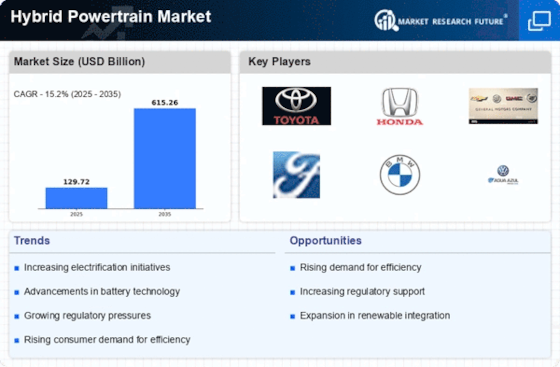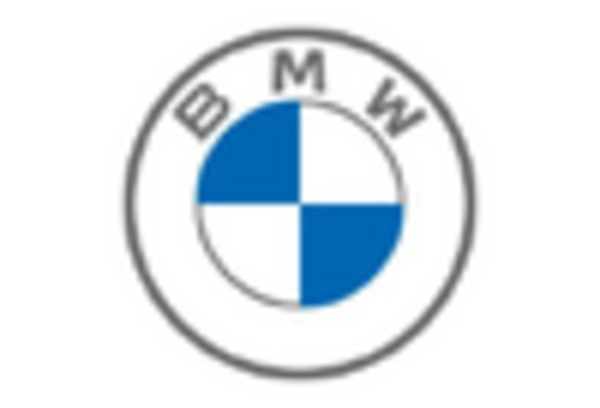Market Trends
Key Emerging Trends in the Hybrid Powertrain Market
The hybrid powertrain market has experienced significant growth and transformation in recent years, driven by a combination of technological advancements, environmental concerns, and regulatory pressures. As consumers and manufacturers alike seek more sustainable transportation options, hybrid powertrains have emerged as a compelling solution, offering a balance between fuel efficiency and performance. One of the key trends shaping the hybrid powertrain market is the increasing adoption of electrification across vehicle segments. From compact cars to SUVs and even commercial vehicles, automakers are integrating hybrid powertrains into their product lineups to meet stringent emissions standards and appeal to eco-conscious consumers.
Another notable trend in the hybrid powertrain market is the evolution of hybrid technology itself. Early hybrid vehicles were primarily focused on improving fuel economy through the combination of an internal combustion engine and an electric motor. However, advancements in battery technology and electric drivetrains have enabled the development of plug-in hybrid electric vehicles (PHEVs), which offer extended all-electric driving range and the ability to recharge the battery from an external power source. This shift towards plug-in hybrids reflects growing consumer demand for vehicles that can operate solely on electric power for short distances, while still offering the flexibility of a conventional hybrid drivetrain for longer trips.
Furthermore, the hybrid powertrain market is witnessing increased competition from fully electric vehicles (EVs), spurred by declining battery costs and improvements in charging infrastructure. While hybrids continue to offer advantages in terms of range and refueling convenience, EVs are becoming increasingly viable alternatives, particularly in urban areas where charging infrastructure is more prevalent. As a result, automakers are faced with the challenge of balancing their investments between hybrid and electric powertrains to meet diverse consumer preferences and regulatory requirements.
In addition to technological advancements, market trends in the hybrid powertrain segment are also influenced by government policies and incentives aimed at promoting cleaner transportation solutions. Many countries around the world have implemented regulations such as fuel economy standards and emissions targets, which incentivize automakers to invest in hybrid and electric vehicle technologies. Furthermore, subsidies and tax incentives for hybrid and electric vehicles can help reduce the upfront cost for consumers, making these vehicles more accessible and appealing.
Moreover, consumer preferences and buying habits play a crucial role in shaping market trends in the hybrid powertrain segment. While some consumers prioritize fuel efficiency and environmental sustainability, others may prioritize performance, convenience, or cost savings. Automakers must therefore carefully balance factors such as vehicle price, fuel economy, driving range, and charging infrastructure to appeal to a diverse range of customers. Additionally, the rise of ride-sharing and car-sharing services has created new opportunities for hybrid and electric vehicles, as fleet operators seek to reduce operating costs and carbon emissions.
Looking ahead, the hybrid powertrain market is poised for further growth and innovation as automakers continue to invest in electrification and as consumer preferences evolve. Advances in battery technology, electric drivetrains, and vehicle connectivity are expected to drive improvements in hybrid vehicle performance, efficiency, and affordability. Furthermore, ongoing efforts to expand charging infrastructure and reduce battery costs will help accelerate the adoption of hybrid and electric vehicles across global markets. Overall, the hybrid powertrain market represents a dynamic and rapidly evolving segment of the automotive industry, with significant potential to shape the future of transportation.



















Leave a Comment